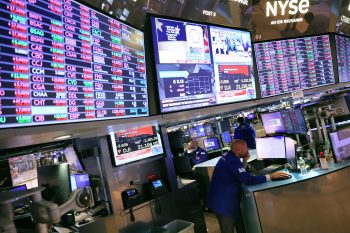CEOs creating value — for themselves
TEXT OF COMMENTARY
KAI RYSSDAL: The Fed’s interest-rate cut this morning may or may not solve the liquidity crisis — we’re going have to let subprime problems play themselves out before we know.
But it’s clear the mortgage mess is still reverberating through the economy. Who’s to blame? Commentator Robert Reich thinks it’s the same people who cashed in before the credit bubble burst.
Robert Reich: If you were to look at the highest-paid one-half of one percent of Americans, whom do you image you’d find? Well, according to a study by University of Chicago professors Steven Kaplan and Joshua Rauh, the fact is, you’d find more than twice as many Wall Street financiers as corporate executives.
Why are people in the financial economy doing so much better than those in the real economy? If you believe pay is a measure of someone’s economic value, you might think Wall Street’s top brass contributes more to the economy.
I mean, consider the inventiveness required to create collateralized debt obligations, structured credit derivatives and all the other financial innovations over the last few years… Some of which — although no one seems to know how much of which — have rested on subprime loans.
But you might want to think again. Last week, Merrill Lynch stunned investors by announcing a $7.9 billion write-down of bonds backed by subprime mortgages — billions more than the company had forecast earlier this month. Then yesterday, Merrill’s top guy, Stanley O’Neill, was sacked.
But don’t cry for him — he’ll get $250 million dollars severance, $40 million more than Robert Nardelli’s severance after Home Depot’s shares plunged. Even when it comes to being fired, it seems Wall Street’s top brass do better than regular CEOs.
And other Wall Street heads may be on the chopping block soon. Despite all the hype about each big bank having its own expertise, they’ve all used similar techniques of highly-leveraged and largely unaccountable speculation — which means their balance sheets are likely to have similar credibility problems.
With their fiscal years ending in November, and their auditors requiring that assets reflect market realities, other firms will certainly face other big write-downs. In other words, there’s no reason to believe Wall Street executives have been contributing more than executives in the real economy. They’ve been paid more because they devise schemes that only appear to create value — until they unravel…
RYSSDAL: Robert Reich was the secretary of labor during the first Clinton Administration. He’s a professor of public policy at Berkeley now. His latest book is called Supercapitalism.
There’s a lot happening in the world. Through it all, Marketplace is here for you.
You rely on Marketplace to break down the world’s events and tell you how it affects you in a fact-based, approachable way. We rely on your financial support to keep making that possible.
Your donation today powers the independent journalism that you rely on. For just $5/month, you can help sustain Marketplace so we can keep reporting on the things that matter to you.


















